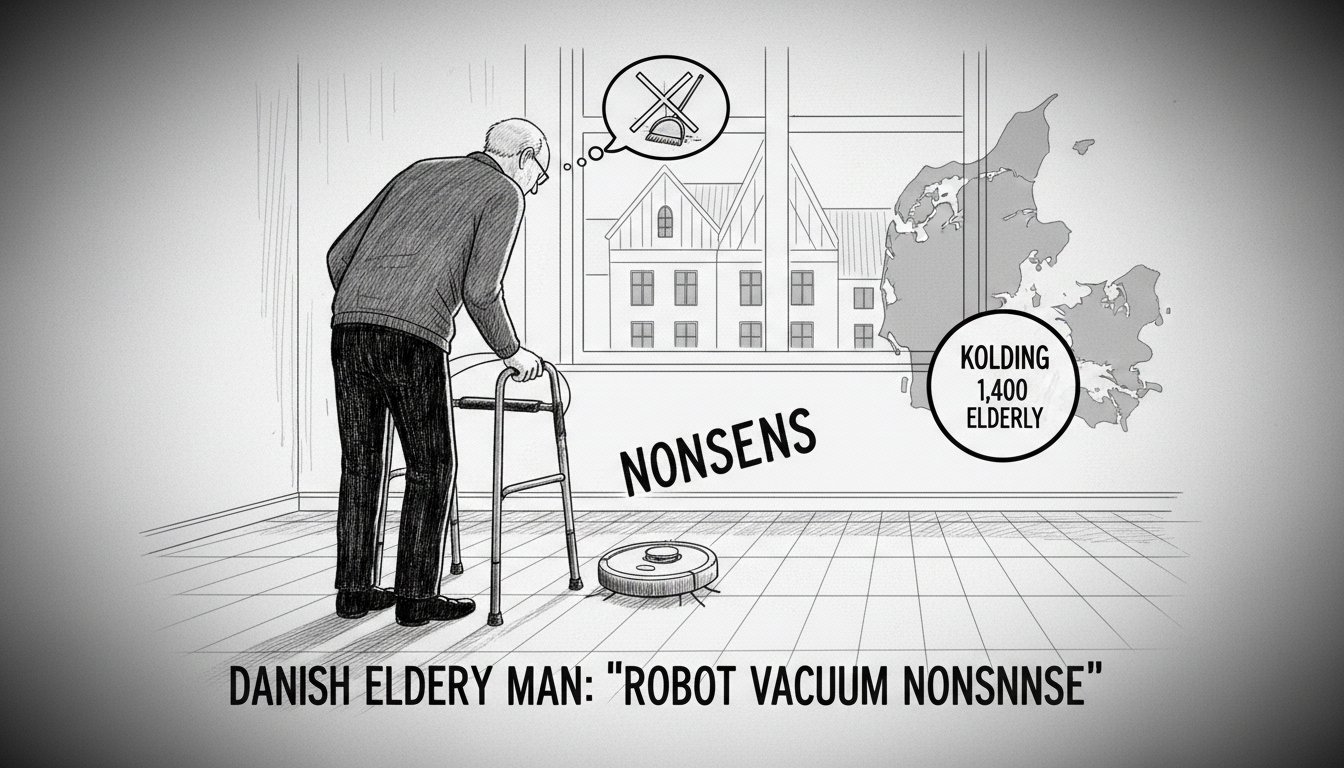A 92-year-old Danish man with a walker must patiently navigate his senior housing unit when visitors knock. Emil Lysen moves slowly through his home, clearly affected by his advanced age. He represents one of 1,400 elderly residents in Kolding Municipality who lost their biweekly vacuuming service due to a budget agreement effective January 1. The municipality replaced human cleaners with robot vacuums for these seniors.
Emil Lysen expresses strong dissatisfaction with the automated solution. The robot vacuum fails to reach corners, baseboards, and furniture legs. It frequently gets stuck and stops working entirely. Sometimes the device tangles in cords and tilts over completely. Despite these shortcomings, all city council parties except the Danish People's Party approved the measure.
Political leaders defended the decision by citing staffing shortages in elderly care. They argued that care workers should focus on personal assistance rather than household chores. A local political candidate maintains support for the policy, stating it aims to reallocate personnel resources rather than cut services. The candidate emphasizes that staff should handle different tasks instead of vacuuming.
The opposition party recently reversed its position ahead of municipal elections. They now advocate making robot vacuum use voluntary for residents. This policy change comes too late for Emil Lysen, who already purchased a robot vacuum under municipal pressure. He reluctantly complies with the requirement but considers the solution inadequate.
Physical limitations prevent Emil from bending down to operate the device. He uses a shoehorn to press the start button. Then he slowly moves through his home with one hand on his walker and a broom in his other hand. He sweeps areas the robot vacuum misses. Home care workers complain about insufficient cleaning when they arrive to wash his floors.
Emil questions why politicians cannot allocate funds for proper vacuuming services. He reflects on his working life from age 14 until retirement at 66. He paid taxes and health contributions throughout his career yet feels he receives little in return during his senior years.
His neighbor Henning Hansen shares similar frustrations. The 67-year-old suffers health complications after two cerebral blood clots. He also received municipal instructions to purchase a robot vacuum. Henning considered the requirement ridiculous but complied. His robot vacuum now sits unused in the kitchen collecting dust.
The device consistently gets stuck under his sofa and armchair. Henning describes the machine as complete nonsense. He hired a young woman to vacuum before home care workers wash his floors. This creates an informal user-payment system that strains his limited budget.
Both seniors say the vacuuming controversy will influence their voting in upcoming municipal elections. They feel mistreated by local authorities and believe politicians should acknowledge their responsibility toward elderly citizens. The situation highlights broader questions about automation versus human care in Scandinavian welfare systems.
Nordic countries traditionally pride themselves on comprehensive social safety nets. This case reveals how budget constraints challenge those commitments. Municipalities face difficult choices between technological efficiency and personalized care. The robot vacuum policy demonstrates how automation affects vulnerable populations directly.
International observers should note that even robust welfare states struggle with elderly care funding. The Danish example shows how local governments implement cost-saving measures that impact daily life. Similar debates occur across Scandinavia as populations age and public budgets tighten.
The emotional impact on seniors like Emil and Henning cannot be overlooked. They feel their lifetime contributions to society deserve better recognition. Their experience raises important questions about dignity, automation, and the changing nature of elder care in modern welfare states.

